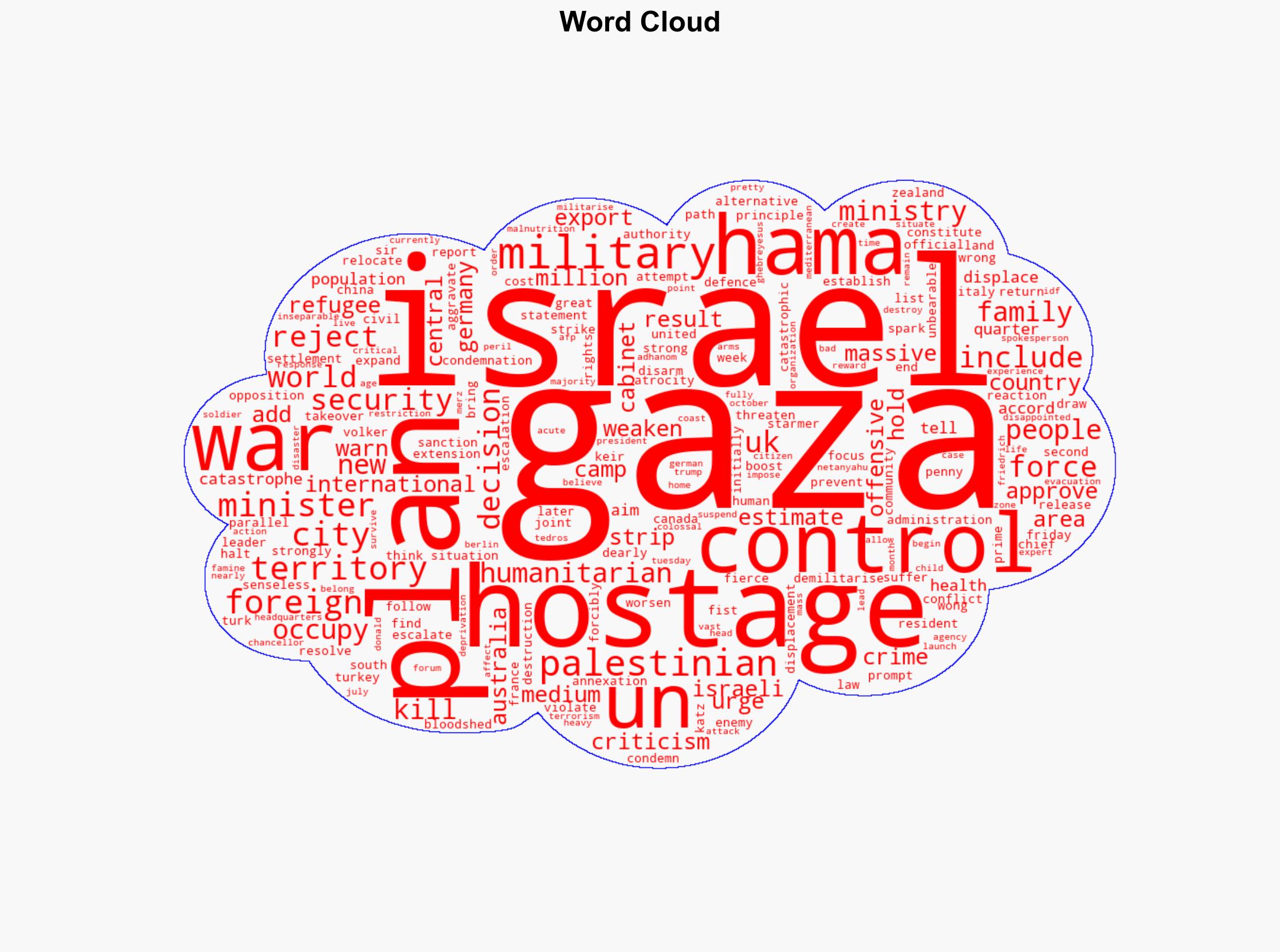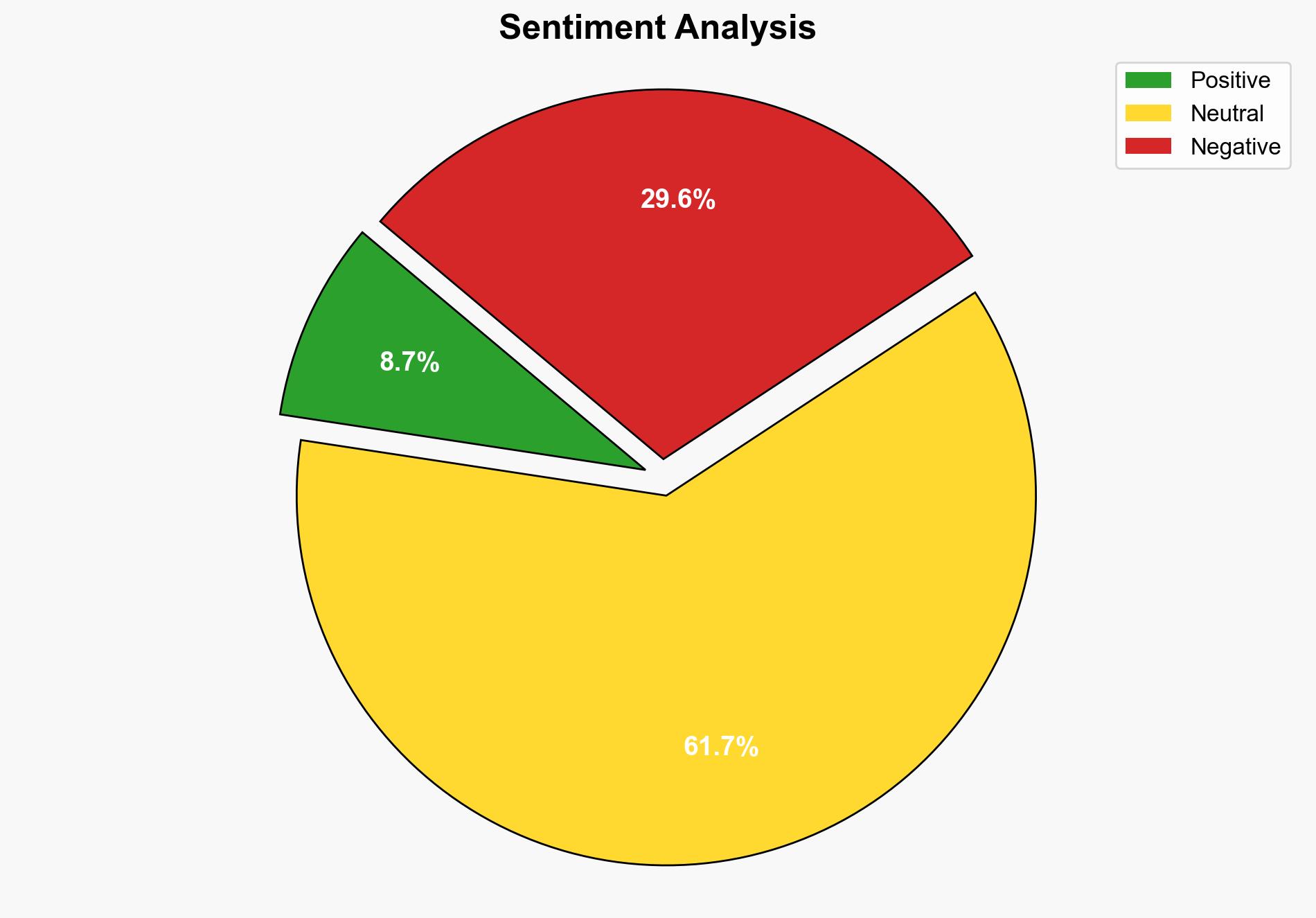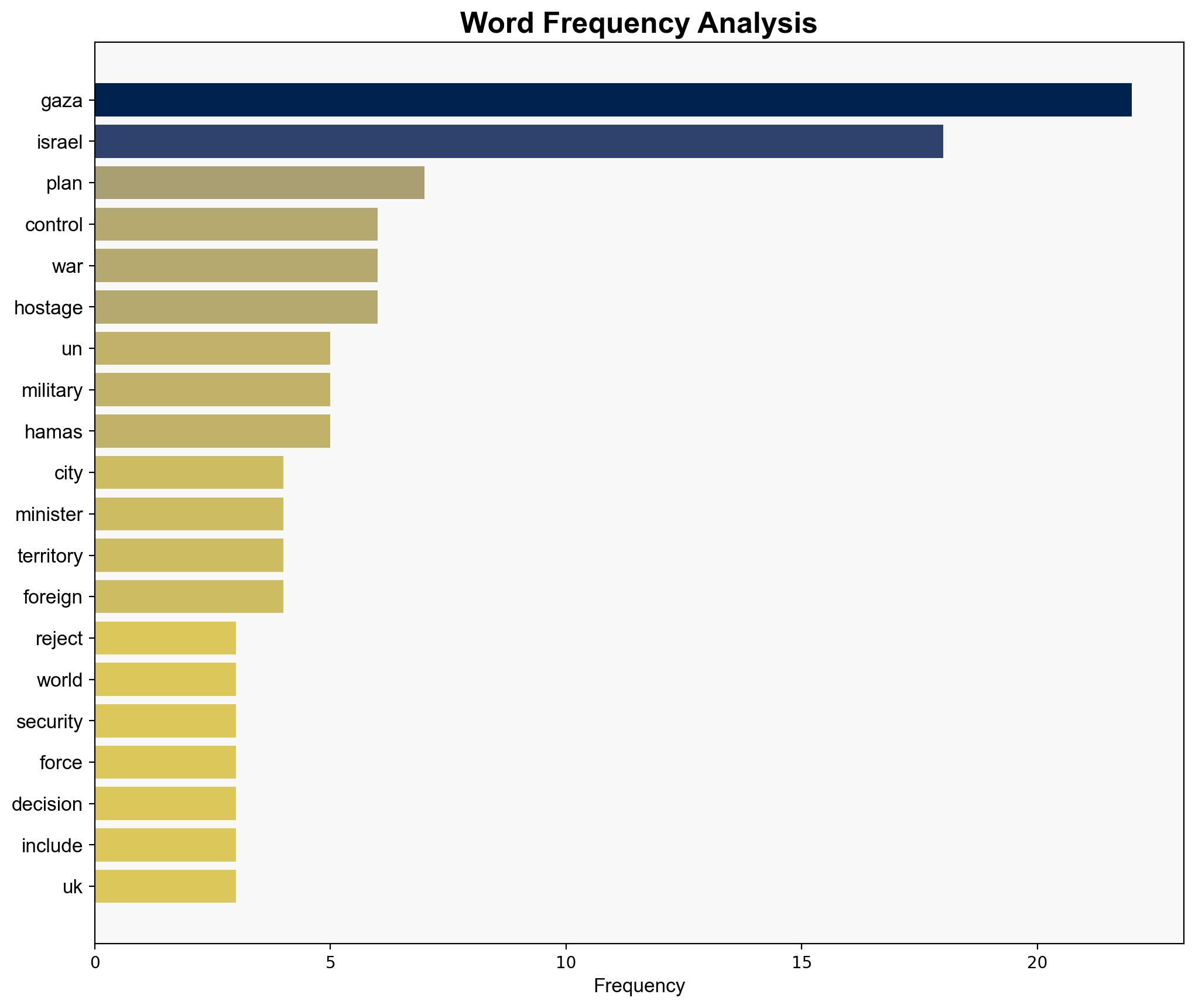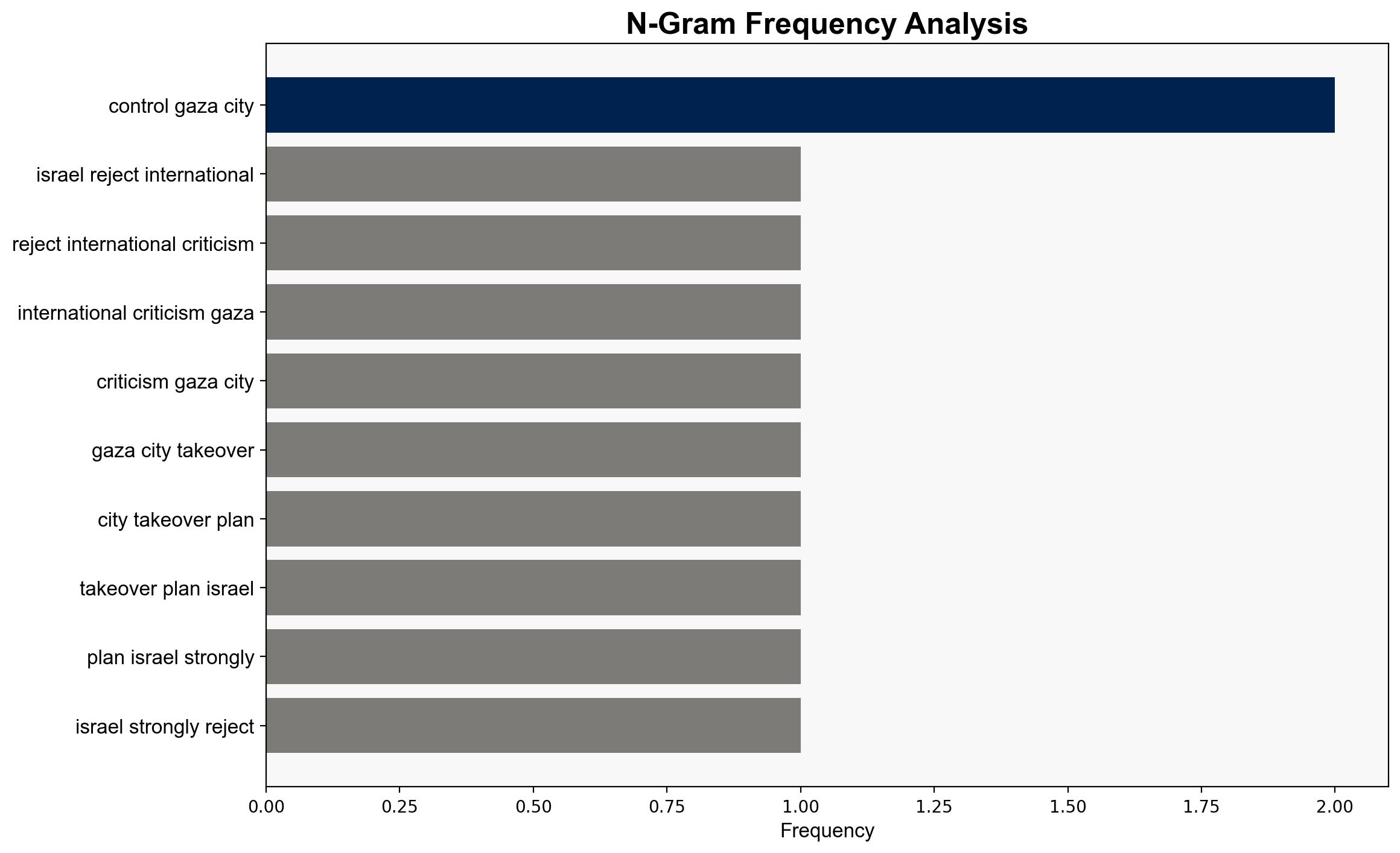Israel rejects international criticism of Gaza City takeover plan – BBC News
Published on: 2025-08-08
Intelligence Report: Israel rejects international criticism of Gaza City takeover plan – BBC News
1. BLUF (Bottom Line Up Front)
The most supported hypothesis is that Israel’s plan to take control of Gaza City is primarily driven by security concerns, aiming to disarm Hamas and stabilize the region. However, this action risks significant international backlash and humanitarian consequences. Confidence level: Moderate. Recommended action: Engage in diplomatic efforts to mediate between Israel and international stakeholders to prevent further escalation and address humanitarian needs.
2. Competing Hypotheses
1. **Security-Driven Hypothesis**: Israel’s plan to control Gaza City is motivated by the need to neutralize Hamas, secure the release of hostages, and prevent future attacks. This hypothesis is supported by Israel’s emphasis on disarmament and establishing security control.
2. **Territorial Expansion Hypothesis**: The plan is part of a broader strategy for territorial expansion and establishing a long-term presence in Gaza, potentially violating international law. This is suggested by international criticism labeling the plan as annexation and settlement extension.
Using ACH 2.0, the Security-Driven Hypothesis is better supported due to Israel’s historical security concerns and immediate threats posed by Hamas. However, the Territorial Expansion Hypothesis cannot be entirely dismissed given the geopolitical implications.
3. Key Assumptions and Red Flags
– **Assumptions**: The Security-Driven Hypothesis assumes Israel’s primary goal is security rather than territorial gain. The Territorial Expansion Hypothesis assumes Israel’s actions are strategically aimed at altering territorial boundaries.
– **Red Flags**: The lack of clear communication from Israel regarding long-term intentions raises concerns. The potential for cognitive bias exists in underestimating the humanitarian impact and international response.
– **Inconsistent Data**: Conflicting reports on the scale of humanitarian aid and the true intentions behind the plan.
4. Implications and Strategic Risks
– **Geopolitical Risks**: Increased tensions with international allies, potential sanctions, and isolation in global forums.
– **Humanitarian Risks**: Escalation could lead to severe humanitarian crises, including mass displacement and deprivation.
– **Security Risks**: Potential for retaliatory attacks by Hamas or other groups, further destabilizing the region.
– **Economic Risks**: Suspension of military exports from countries like Germany could impact Israel’s defense capabilities.
5. Recommendations and Outlook
- Engage in multilateral diplomacy to address international concerns and prevent escalation.
- Facilitate humanitarian aid and ensure civilian protection to mitigate humanitarian risks.
- Scenario Projections:
- Best: Diplomatic resolution with minimal conflict and humanitarian aid access.
- Worst: Full-scale conflict leading to widespread displacement and international isolation.
- Most Likely: Prolonged tension with intermittent conflict and international diplomatic efforts.
6. Key Individuals and Entities
– Israel Katz
– Volker Turk
– Keir Starmer
– Penny Wong
– Friedrich Merz
– Donald Trump
– Tedros Adhanom Ghebreyesus
7. Thematic Tags
national security threats, geopolitical tensions, humanitarian crisis, international diplomacy





